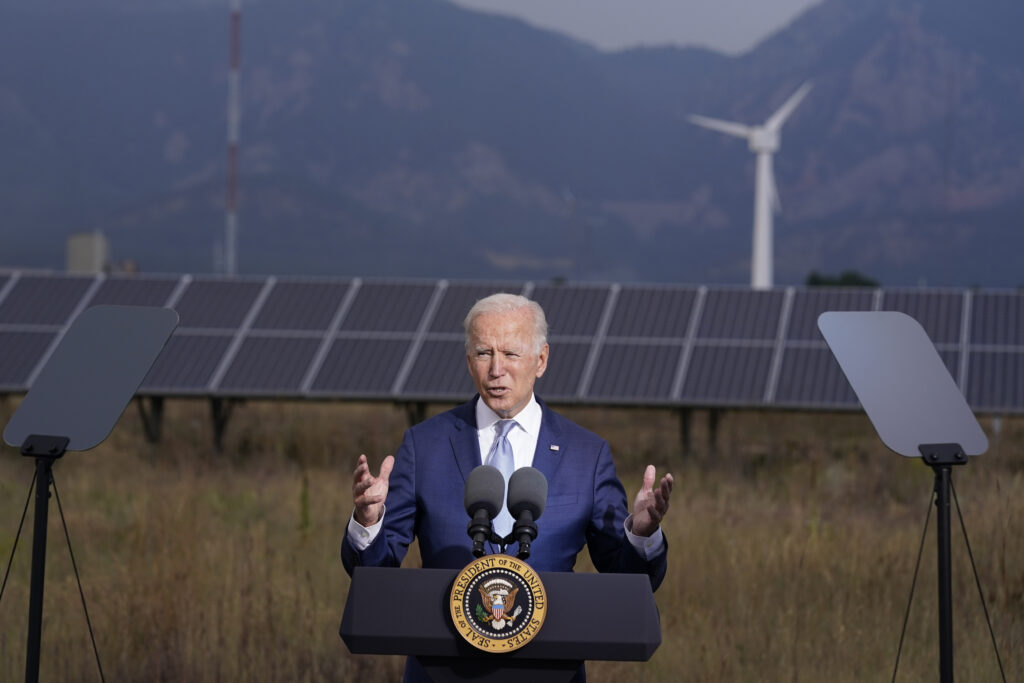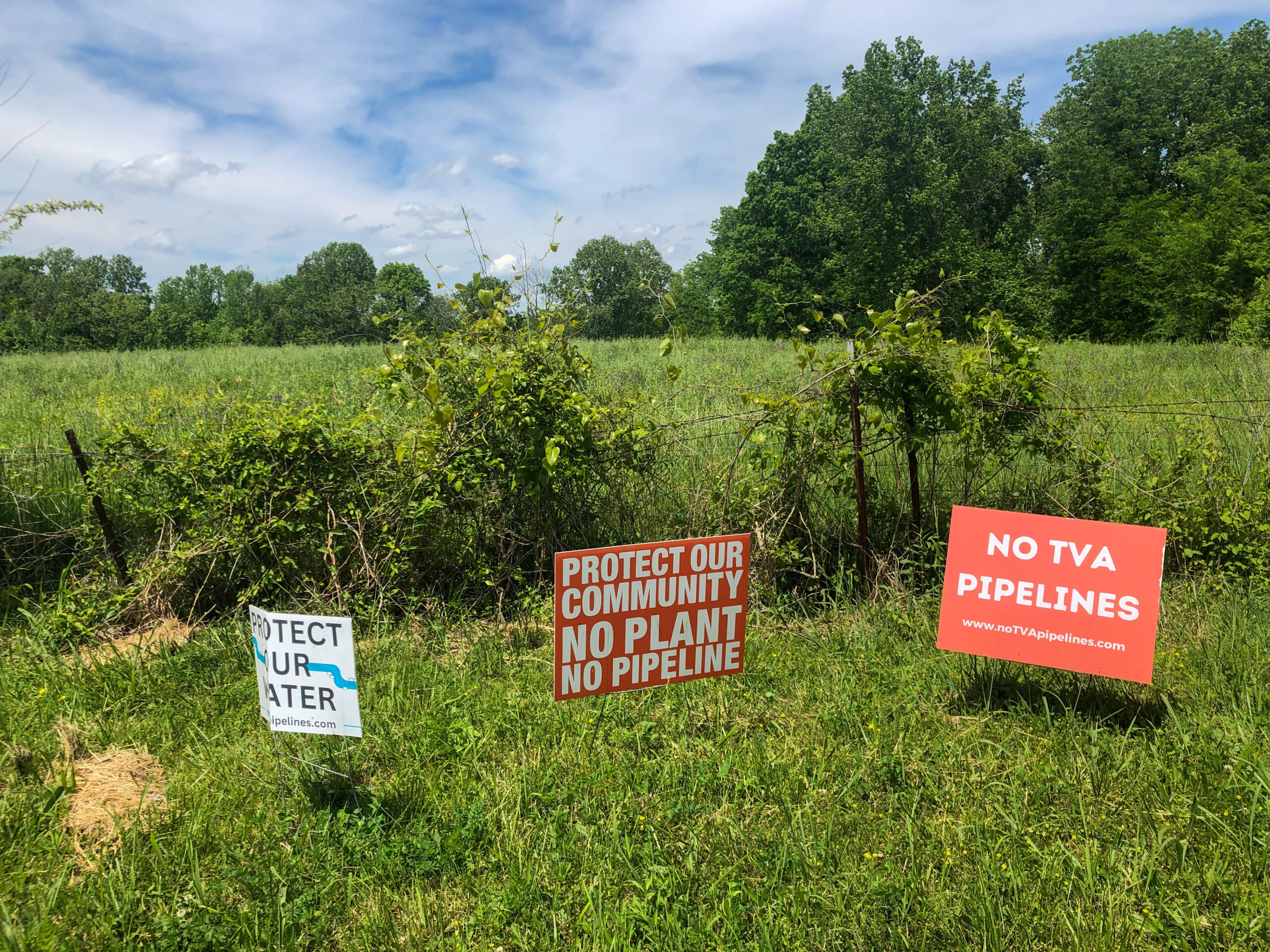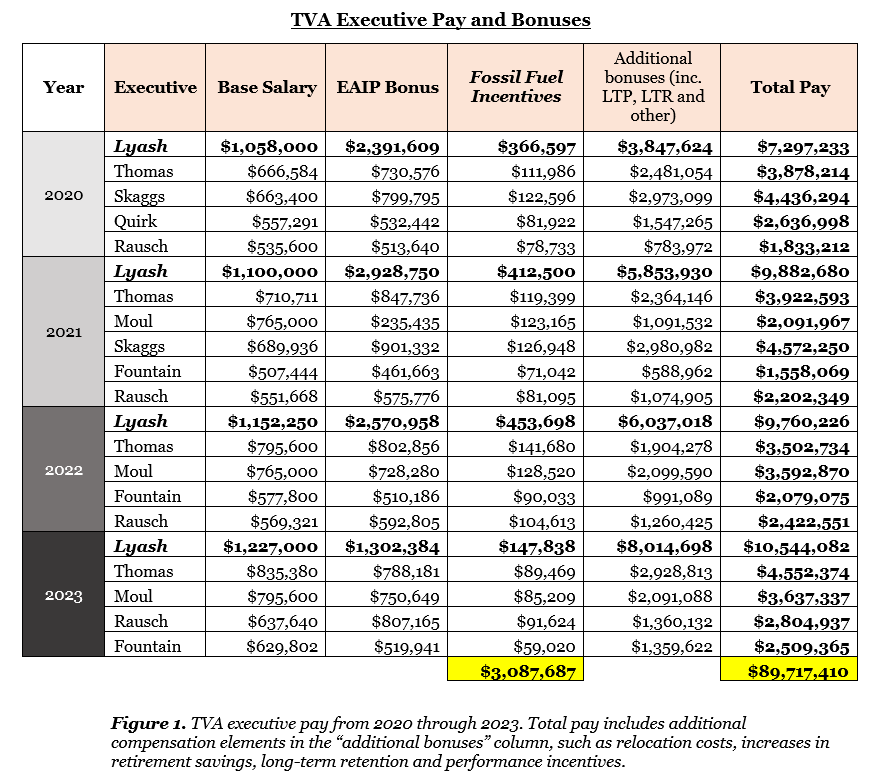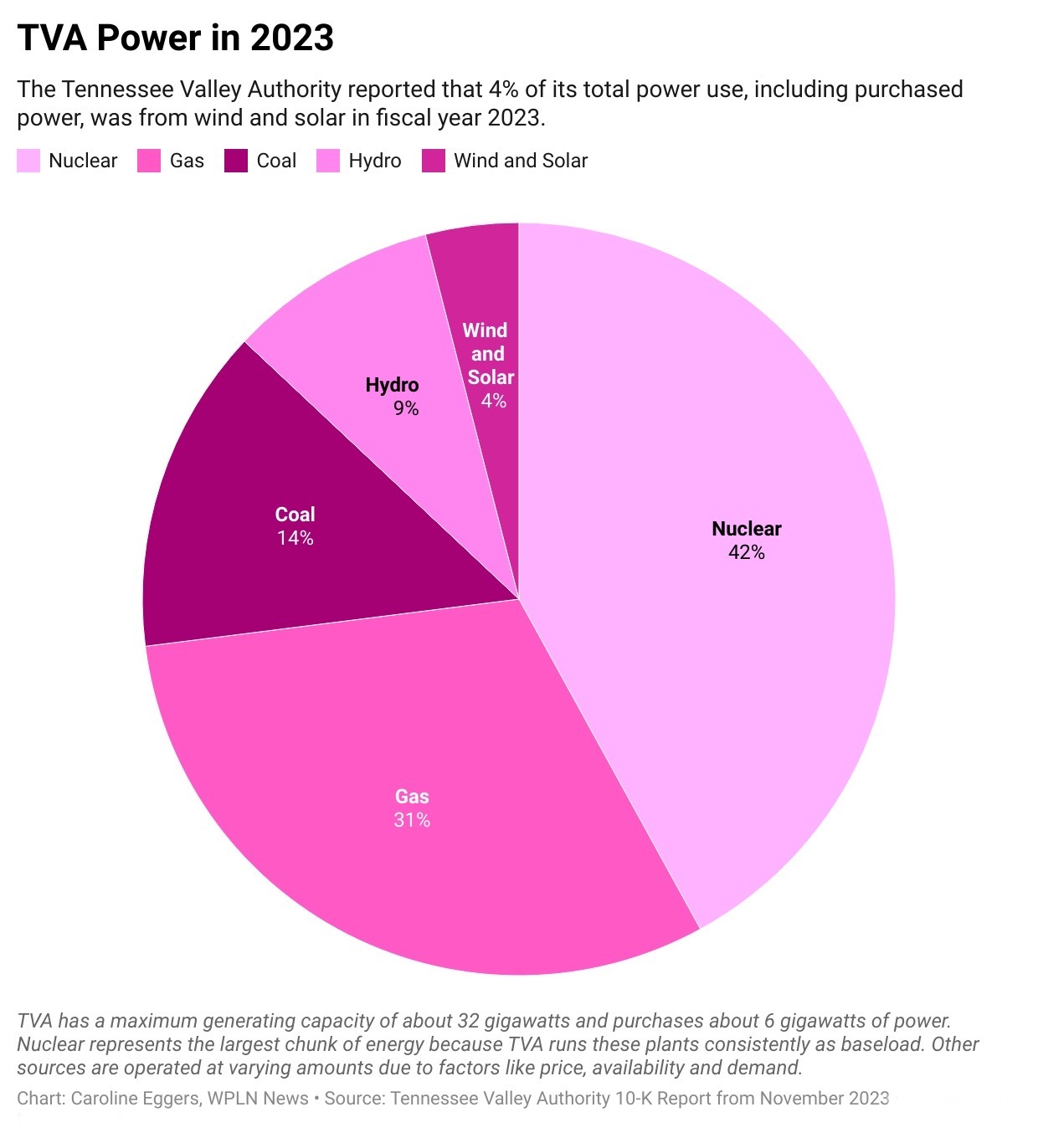
The Tennessee Valley Authority is a unique utility.
It is one of the largest in the nation, serving 10 million people, and it is public. TVA was created in the 1930s during the presidency of Franklin D. Roosevelt, and it is still shaped by U.S. presidents today.
President Joe Biden made some historic moves on climate during his administration. But his impact on TVA has largely been “milquetoast,” according to Daniel Tait, a researcher at the Energy and Policy Institute.
The president provided opportunities for a cleaner future but did not take enforcement action — even when a federal agency argued that TVA broke the nation’s foundational environmental law earlier this year.
Here is how Biden influenced TVA during the last four years.
Clean electricity by 2035
During his first week in office, President Biden signed an executive order calling for a carbon-pollution-free electricity sector by 2035. He urged bold action from all levels of government and promised to hold polluters accountable, deliver environmental justice and provide money for clean energy.
“In my view, we’ve already waited too long to deal with this climate crisis. We can’t wait any longer,” Biden said at the time.
The U.S. Department of Energy studied various ways the entire country could reach 100% clean electricity by 2035. TVA could have met this goal even sooner, by 2030, and can still meet the goal by 2035 — if it changes course.
TVA’s special provision in the Inflation Reduction Act
In 2022, Biden passed the Inflation Reduction Act, which has been described as the most significant climate law in U.S. history.
The law included a special provision: It explicitly named TVA as being eligible for tax credits for renewable energy, essentially making wind, solar and batteries cheaper for the utility.
“Once you calculate in those Inflation Reduction Act benefits, clean energy wins every time against fossil fuels,” Trey Bussey, an attorney at the Southern Environmental Law Center, said at the time.
Despite the federal goal and federal incentives for clean energy, TVA, which is federally owned, moved in the opposite direction.
TVA skirts federal law
Since Biden took office, TVA has budgeted billions for new fossil fuel infrastructure, planning nine gas plants and more than 160 miles of gas pipelines. The buildout represents a 60% increase in TVA’s gas capacity and contributes to a system of fracking, pipelines and methane burning that pollutes people and the climate.
One of those nine projects was proposed last year in Memphis, an area that has experienced decades of environmental racism.
“Stop polluting the communities of Black folks, Indigenous folks, poor folks,” activist Yolonda Spinks said at the time.
Only one other utility in the nation is proposing this much new fossil fuel infrastructure — neighboring Duke Energy.
The vast majority of new capacity being added to the grid is renewable: This year, the U.S. Energy Information Administration forecasted that 96% of new capacity for electricity would be clean energy, while only 4% would be fossil gas. Texas and the Southeast account for the majority of planned gas plants, located on the route between large drilling fields and ports on the Gulf of Mexico, where the U.S. ships liquified gas to other nations.
In April, the Biden Administration finally responded.
 Caroline Eggers WPLN News (File)
Caroline Eggers WPLN News (File)Tracy O’Neill has signs in front of her house in Ashland City, Tennessee on May 2, 2024.
The U.S. Environmental Protection Agency sent TVA a letter about a proposed project near Knoxville. TVA planned a 1.5-gigawatt gas plant and 122-mile pipeline to replace its notorious Kingston coal plant, the site of the nation’s worst industrial spill in history.
EPA called TVA’s environmental review for this project “inadequate,” with “misleading” information and a “lack of transparency.” EPA ordered TVA to prepare a supplemental environmental review and encouraged the utility to consider a safer and cheaper option for power. EPA pointed to an independent analysis that showed a solar option would save TVA ratepayers about $1.3 billion over 20 years compared to the gas plant.
“I have never seen an EPA letter so strongly criticizing one of TVA’s projects,” Amanda Garcia, a senior attorney at the Southern Environmental Law Center, said at the time.
Basically, EPA said TVA broke the National Environmental Policy Act, one of the nation’s oldest comprehensive environmental laws. Or, at least, the letter indicated that TVA’s decision would be “legally vulnerable,” Garcia said.
TVA responded quickly: by ignoring EPA’s requests for the review and a meeting to discuss the letter.
TVA CEO Jeff Lyash finalized the decision for the Kingston gas project just a week after the letter. Lyash was given the power to do so, despite critiques of financial conflicts of interest embedded into TVA’s bonus structure, after the TVA Board gave up its decision-making authority without public notice.
 Courtesy Center for Biological Diversity
Courtesy Center for Biological Diversity Since 2020, the top six executives at the Tennessee Valley Authority banked nearly $90 million while pushing fossil fuels.
The White House could have taken legal action. But it didn’t.
Biden gets six new people on TVA Board
Three months into office, Biden appointed four new members to the TVA Board, the main regulator of the federal utility. The board is supposed to have nine members at all times, with members appointed by presidents and approved by Congress. The board is meant to be the oversight authority on behalf of the federal government.
It would take nearly two years before Biden finally got six appointees approved to a short-staffed, Trump-filled board.
U.S. Sen. Ed Markey, D-Mass., oversaw the Senate hearings for these appointees. In a hearing two years ago, he said it was unbelievable that TVA only had 3% — now 4% — wind and solar, given how sunny the region is and the considerations for cost and climate.
“And since it’s very windy in many parts of the TVA, because it’s so vast, it’s shocking they don’t have a higher percentage of wind. It’s almost as though it’s the 1930s and there hasn’t been any real progress,” Markey said.
The appointees made promises during the hearings to consider TVA’s lack of renewable energy and to serve the 10 million people.
“I firmly believe that doing what is best for all the people of the Tennessee Valley is what matters,” said Beth Geer, a now-board member who formerly served as chief of staff for Vice President Al Gore.
The TVA Board was officially full in January 2023. Initially, some folks felt hopeful for meaningful change at the utility, according to Tait, the researcher.
But, ultimately, the board had little effect, even ceding power to the CEO to make some of the most critical decisions of the past four years.
“Just continuing to give that authority to the CEO really just tells me, and I think it should tell the public, that many board members are not there to actually exert any meaningful oversight of the agency,” Tait said.
(In 2023, Biden also appointed Patrice Robinson, a former Memphis city council member, to the TVA Board. Robinson would become the only person of color on what is currently an all-white board. She has remained unconfirmed for 13 months.)
To improve the oversight abilities of the board, Tait said they need independent expertise. The board currently has no independent staff, which is the norm for public utility commissioners in other states.
“They’ve been kneecapped,” Tait said.
TVA’s decisions have serious consequences, affecting the climate, people’s health and monthly electricity bills.
The next U.S. president will once again have an opportunity to affect TVA. The question is: Will they?


